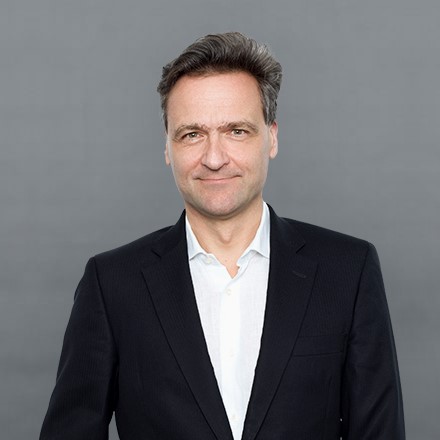Thinking Locally Propelling Stada CHC’s Rapid Growth In Europe
Executive Summary
In this exclusive interview, Stada Consumer Healthcare's global head Volker Sydow discusses the company's growth ambitions for the business in Europe and further afield. Sydow outlines Stada CHC's local brand hero strategy, an approach which he says sets the firm apart from the competition.
Investing in local, often neglected brands has propelled Stada up the rankings of Europe’s leading OTC players. The Germany-based company believes it can displace Bayer as Europe’s number-three OTC supplier in the not too distant future with its Consumer Healthcare sales on an upward trajectory across the region.
But Stada is not stopping there. “We are very ambitious to become much stronger in European markets where we are not yet a top-10 player,” Stada’s executive vice president global Consumer Healthcare, Volker Sydow, told HBW Insight in an exclusive interview.
The southern European markets of Spain, Italy and France are of particular interest to Stada, Sydow revealed. In these countries the CHC business has been growing at a double-digit rate for a sustained period, but the portfolio is comparatively small. “It's important to gain that competitive edge and climb up the rankings,” he said.
To expand its offering in southern Europe, Stada is “extremely open” to acquiring portfolios or companies when it believes it can be a better owner and unlock untapped growth potential.
“We need a broader portfolio in these countries,” Sydow admitted, “in order to be a relevant player across categories.”
“But you cannot count on acquisitions,” he stressed. “Sometimes it happens, sometimes it doesn't, perhaps the business case doesn’t stack up. And if there's no opportunities, what can you do?” For which reason driving the growth of its existing brands and outperforming the market is just as important as acquisitions. “We grow not because we buy, we grow because we win market share with our entire portfolio,” Sydow said.
The portfolio can be expanded with M&A, “but you still have to do something with the brands in a better way than the owner before and this is really what we're focusing on,” he explained.
Local Approach
To get the most out of its portfolio, Stada thinks locally. Most decisions are made locally without much interference by headquarters, an approach which Sydow sees as “very much a point of difference with our peers.” The culture is entrepreneurial and the business is agile “so it doesn’t feel like a large corporate.” Sydow – who joined Stada in 2021 and has previously held leadership positions at Reckitt, Henkel and SSL Healthcare International – describes his role as a strategic one.
“We have a local brand hero strategy, which we implement market by market and by definition it will be highly tailored,” Sydow explained. This sets Stada apart from larger competitors that tend to prioritize a small number of international brands for investment.
"We can be much more agile to the market than you can otherwise be if you have a portfolio of international brands"
“We do not just select four or five brands maximum per market. Instead, we validate the opportunity the portfolio overall can provide and try to drive as many brands as possible,” he said. “This means we are more complex, but we manage it very well. And we can be much more agile to the market than you can otherwise be if you have a portfolio of international brands, which by definition is not as agile and involves longer decision-making processes.”
Stada does market some brands in multiple markets – such as the Grippostad cold flu line, Snup nasal sprays and the Nizoral dandruff treatment - but the growth strategy is implemented locally.
Sydow noted that the company’s brand-first approach also means it does not limit its investments to select categories. “We don't have a category focus, we focus on our brands. If the brand has potential, we are happy to drive its growth, it doesn't really matter which category it is in.”
Brand Investments
In each market, Stada looks for opportunities to extend its brands with new offerings and into new market segments, but will only do so when it won’t damage the credibility of the brand in the eyes of the consumer. “It's not a one size fits all approach as this wouldn't work,” Sydow observed.
As an example, he pointed to baby-care brand Mitosyl, which Stada acquired from Sanofi in 2021. (Also see "Sanofi Streamlines European Portfolio With Brand Sale To Stada" - HBW Insight, 28 Jun, 2021.)
The company was attracted to Mitosyl for its reputation as a go-to-brand for French parents. “We have started nurturing this brand and investing in it to extend its portfolio offer via launches, all with the objective of growing it into a much bigger brand. That's our strategy.”
By giving brands like Mitosyl, that were perhaps not a priority in the past, some love and attention, Stada can be a better owner and grow them, Sydow said.
And Stada is already seeing results, with the launch of line extension Mitosyl Naturel helping to drive up sales in France in 2022. (Also see "Stada Moves Closer To Top-3 Target With Strong Showing In 2022" - HBW Insight, 8 Mar, 2023.)
Success is not limited to France. Another 2021 acquisition, Italian cough and cold brand Lisomucil, had not been invested in for a long time when Stada took ownership, Sydow explained. On this occasion, the local business decided to start investing in marketing to bring consumers back to this well-known family brand. “We went on air with a TV campaign, the brand picked up share and, hence, outperformed the market.”
Ongoing investment in local brands is continuing to pay off for Stada. The CHC business had a strong first quarter in Europe, Sydow said, seeing sales growth “basically in all markets.”
Emerging Markets
But while Sydow described Europe as the “commercial focus,” Stada also has interests in select emerging markets internationally, across south-east Asia and the Middle East.
“We only focus on those markets if we have a brand that can grow, can make a difference to the consumer and that can also gain share,” Sydow explained.
Stada enjoys quite a strong position in the Middle East, where the business is thriving, according to Sydow. Brands such as Radian for muscle pain relief are seeing investment to drive growth.
The company also has a presence in China with a small team, where it is active in the cough and cold category. “In addition, we're trying to see which brands, based on their heritage, we can leverage from Europe,” Sydow noted. “For example, brands of German origin work quite well in China. You can use that heritage and build on it.”
Elsewhere in south-east Asia, the company is also active in Vietnam – not only in CHC but also with its Generics business – and in the Philippines.
US Not Priority
One market which is not a priority for Stada is the US. The company entered the country’s dietary supplements category back in 2021 through the e-commerce channel with its Bio360 and Nuvia brands. (Also see "Stada Makes US Consumer Health Play After Strong Gains In Europe" - HBW Insight, 11 Mar, 2021.)
But a lack of scale and critical mass has led Stada to de-focus from the US, Sydow said. “It’s still a very interesting market for us. But we need to make sure we have critical mass. This is probably something we can only answer in the mid- to long-term. Currently It's not a priority.”
Asked if Stada is interested in expanding its portfolio outside of Europe through acquisitions, Sydow said, “if the opportunity comes up, we will be open.” The company must be a better owner of any acquired assets, he insisted.
Stada has secured a flurry of deals to expand CHC in recent years – including Czech Republic-based dietary supplements firm Walmark and brands acquired from Sanofi and GSK – but Sydow stressed CHC is not being prioritized for investment. Stada’s operation is based on three strategic pillars: Consumer Healthcare, Generics and Specialty.
“We want to grow everything, everywhere and we are happy to invest in all three pillars,” Sydow explained.
While CHC recently overtook Generics as Stada’s largest business in terms of sales that hasn’t changed the company’s thinking. All three businesses are “equally important,” he confirmed.

